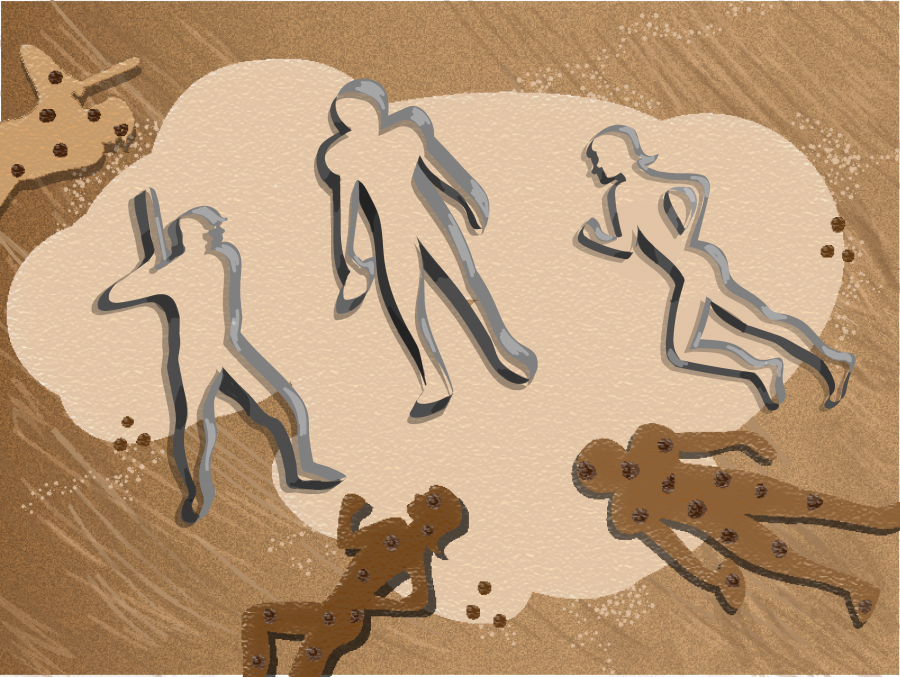According to a 2018 study consisting of 65 universities nationwide — including UT — only 2.4% of undergraduates were black men. However, they made up 55% of football teams and 56% of men’s basketball teams on the campuses surveyed.
Black stereotypes are not only prevalent today for black student athletes, but they are widely uncovered. These stereotypes about black collegiate athletes range from misconceptions from being dumb jocks to being alpha-males, which can contribute to narratives “that (show) the black male student-athlete as a criminal, brute — someone to be feared, or hypermasculine,” said Dr. Alvin Logan, a former football player at the University of Washington and UT Ph.D graduate who has conducted research on black males in higher education.
These stereotypes lead to black student-athletes dismissing the student aspect of their collegiate careers and, according to Logan, result in a lack of development of “any (other) identities outside of their athletic identity.”
Students hold student-athletes to the highest of standards. However, this can lead black student-athletes to be stereotyped as athletes first and foremost, which is damaging to these black men and women as they begin to crave the instant gratification from others that comes with being a student-athlete.
Logan explains that this “athlete first” stereotype was “reoccurring” during his time at Washington. In response to these stereotypes, Logan and his athletic peers would avoid wearing Washington’s athletic gear to their classes to not be perceived as athletes.
“Some athletes would dress down, sit at a different part of the classroom, or tell a lie about themselves so they’re not seen as an athlete because it comes with negative academic qualities,” Logan said.
Black male athletes are generally stereotyped as alpha-males. This is partly because football players are much larger in physique than the average human and basketball players are much taller in stature. This serves as fuel for this superhuman misconception, which can also lead to black students being falsely recognized as student-athletes.
“I could go to class dressed in a bow tie, a button-down and a nice pair of slacks and no matter what — at some point in the conversation I’m having with somebody they’re going to ask (if I play sports) because of my physical stature,” said Logan.
If the majority of men on basketball and football teams nationally are predominately black and only 4% of students at UT are black in total, one can argue that students are not only in the presence of “alpha-males” frequently, but these same black student-athletes make up the majority of black student representation seen on campus by other student demographics.
If students often encounter these “superhumans” — black student-athletes who don’t look like them — on campus, and these are the only black students that non-black students can familiarize themselves with, then these misconceptions will be validated.
“You rarely see that some of the (black) UT football players are great piano players, you rarely see that a lot of the (black) women on the UT basketball team are very creative (or) that (these same women) mentor young men into what it means to be good men as they grow up,” Logan said. “(Instead) what you do see is the fact that they scored 15 points, got six steals and four assists.”
Black student-athletes must be recognized holistically — seen as being students first and athletes second. Until these black stereotypes are acknowledged, they have no chance of being abandoned.
West Jr. is a journalism sophomore from New Orleans, Louisiana.


















